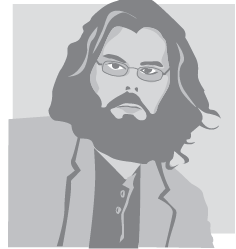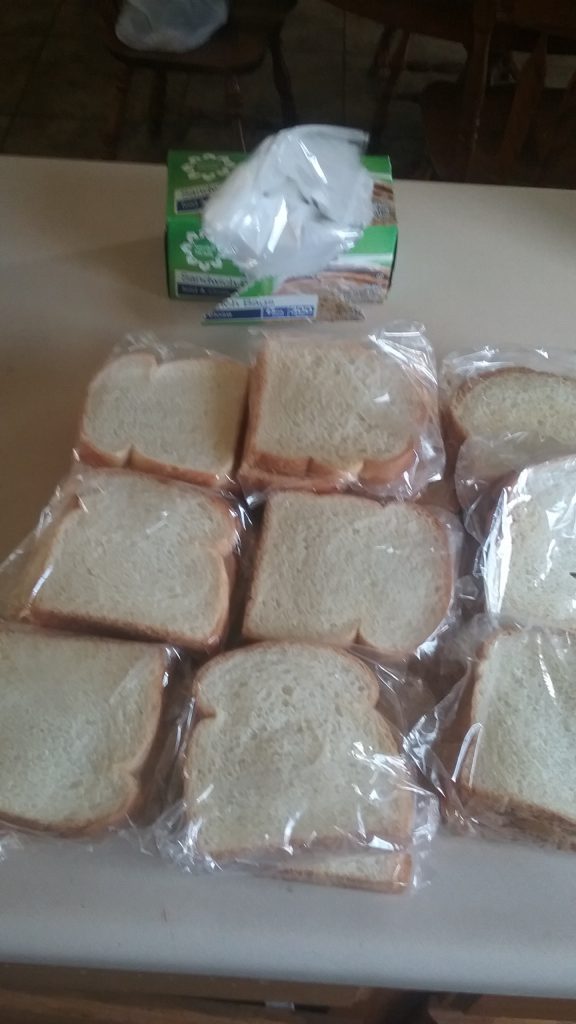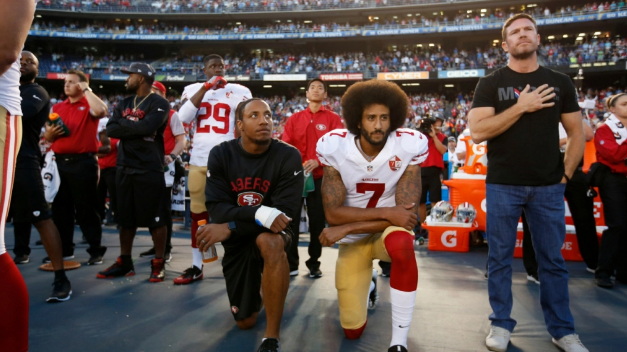 aNewDomain — I’m no Colin Kaepernick. But I do pledge allegiance to people with a cooler full of sandwiches.
aNewDomain — I’m no Colin Kaepernick. But I do pledge allegiance to people with a cooler full of sandwiches.
There has been a lot of talk lately about how to honor our forefathers.
Seems some folks want to sit through the national anthem out of conscience. A country that leaves out so many of its citizens, that persecutes and oppresses people based on their skin color or their religion, what they want to know is how could you, in good conscience, stand up for that anthem?
Some others, well, they seem to think sitting for the anthem is a slap in the face for veterans living and dead, for people who bled to make our country great. A slap in the face for freedom.
Sitting, they say, disrespects firefighters and cops.
You know, I can see everyone’s point.
Sometimes I do sit in sympathy, though. This is made easier by the fact that I’m a white guy, a veteran.
So when I sit, nobody really challenges me or even seems to notice. That’s privilege.
I go to gay pride rallies because I’m straight and nobody ever calls me out in the street for holding hands with my wife.
Sometimes I sit for the anthem because nobody ever questions my patriotism because of my faith or my skin color or my sex.
And usually I stand. Faults and all, I love my country. I love her enough to be sad and angry a lot of the time, to want justice; I’m not infatuated into blindness.
The thing is this: it’s just a song. The National Anthem, it’s just a song. Not even a great song. I mean, you can’t dance to it. It tells a story about watching the flag through a long night in a long-ago war, being lifted by hope over not just a banner but what it would stand for. Freedom, one people, one nation.
 Authority says stand for the anthem, recite the pledge, memorize the preamble to the Constitution. I say, reflect on what those things mean.
Authority says stand for the anthem, recite the pledge, memorize the preamble to the Constitution. I say, reflect on what those things mean.
What does it mean to stand with your hand over your heart while we all sing a song together? All of us, together? What does it mean to pledge yourself to a flag? What is a more perfect union?
There might be a lot of answers to those questions and they’re all fine, really. I have trouble, though, pledging my allegiance to a flag. It’s inert. It can stand for a lot of things and those meanings can change over time. They can be problematic. Worst of all, by demonstrating my public piety, by openly voicing words of patriotism, I can consider myself a patriot when I haven’t done anything of note.
I’m very guilty of complaining about injustice but doing nothing. I feel like a stranger here on Earth, like nothing here is really to do with me. I didn’t write the laws. I didn’t invent racism. I didn’t sew the flag. I sure as hell didn’t serve in the U.S. Armed Forces so that I could tell other people what to do. But there has been this pressure building inside me for a while now, and this talk about patriotism – it just seems like lip service to me, you know? It’s combined with some experiences to make the pressure urgent.
I like to walk. My kid likes to play Pokemon Go. So I take him places, walk with him, talk with him while he does his thing. We have fun. Lately, though, everywhere we go is full of homeless people. Poor people. Beggars, panhandlers, people with signs and tin cups at every highway interchange. And there’s nothing I can do about it.
There has been a big push locally to criminalize homelessness in a lot of ways. The camps are shut down. We have ordinances against sitting or lying down in public. We don’t have anything like the infrastructure we need to help so many people – hundreds of homeless and needy people around town.
I started talking to them here and there. No, they didn’t come here for legal weed. That’s stupid: the legal kind costs four times the illegal kind, and wherever these homeless people set up, the cops come through doing drug searches in a day or two. They’re families. Or people released from jail or prison with no place to go. Folks come here out of concern for their families, and find they have no support when they get here.
They are veterans.
Well, today I had an unexpected day off from school. I started to compose a list of things to do with this unexpected time off. Work. Pace. Go for a walk. And it struck me how privileged it was to be bored and listless. And I remembered walking downtown with my son.
He was complaining about something really important to him: Pokemon. And I shook with rage. Not his fault; he couldn’t know what the people all around him were going through, the people with no-where to go and nothing to eat, the people the ordinances were written for. I tried to explain it to him on the way home. Emotion got the better of me, and I did a bad job. I think I just scared him.
And here I was, getting ready to waste my day by myself.
So I went to the grocery store. We were due for a run anyway. I got food for the family. What a privilege, to be able to buy what I want without first checking the bank account. I work hard (four jobs), and I’m making it, doing okay, getting by. So easy to think that means anyone who works hard can make it. I bought some extra things: a bag of oranges, some peanut butter and jelly, a couple bags of bread.
At home, I put my food in the pantry, then made a pile of PB&Js. Stuffed them in a cooler with some chips, fruit, a bag of cookies I got for cheap. Stuck them in the trunk with a few cases of bottled water. And I drove all that to a homeless hangout downtown, just off the highway.
I figured I would be a couple hours walking around, finding the folks who needed something. But the gazebo was full. My 18 sandwiches were passed out in about two minutes. The rest of the food was gone faster than I could empty the cooler. People were polite and grateful, and expected I would lay some rules or some trip on them. (“Can I take two? My son is down the hill here … ” “Of course. Take what you need.” “May I have a sandwich, too?” “Please, don’t be shy – get in there.”)
I should have left feeling better but I felt worse. I thought I’d make some kind of dent, even a small one, but all the food I could carry was gone in no time flat. The need is bigger than I can attend to. That doesn’t mean I shouldn’t do something, though. Not at all. Sometimes, we know the right thing to do by its futility. And at least a dozen people don’t have to worry about being hungry tonight. That’s next to nothing in the grand scheme, but not actually not nothing. It’s something.
What I’m saying, ultimately, is this: it’s no good to pledge allegiance to the flag if you have no allegiance to the people. It is no good to stand for the anthem if you won’t stand for your fellow Americans (or world citizens!). It’s no good to honor veterans if you won’t honor them by making some sandwiches and going down to your local homeless hangout. Put your hand over your heart so you can feel it stirring, not so everyone can see you.
Patriotism can be really great. Sincerely. But what good is a feeling of love and pride that does not lead to some action of love and pride?
I’ll be back downtown in a few days with another cooler full of food. It won’t be enough. Our problems are bigger than a gazebo in a park full of homeless people; the problems extend to the way we value life, our information sources, our notions of truth and justice and more. But I will be back. I’d really like to have company.
All the people who say they love America, I’d love to see you down at the park with coolers full of food. With blankets, with offers of rooms in your basements. Poor people are Americans too, see. It’s great to swell with pride at the notion of America, and it’s great to help each other out when we can.
For aNewDomain, I’m Jason Dias.
Cover image: TheUndefeated.com, All Rights Reserved.













